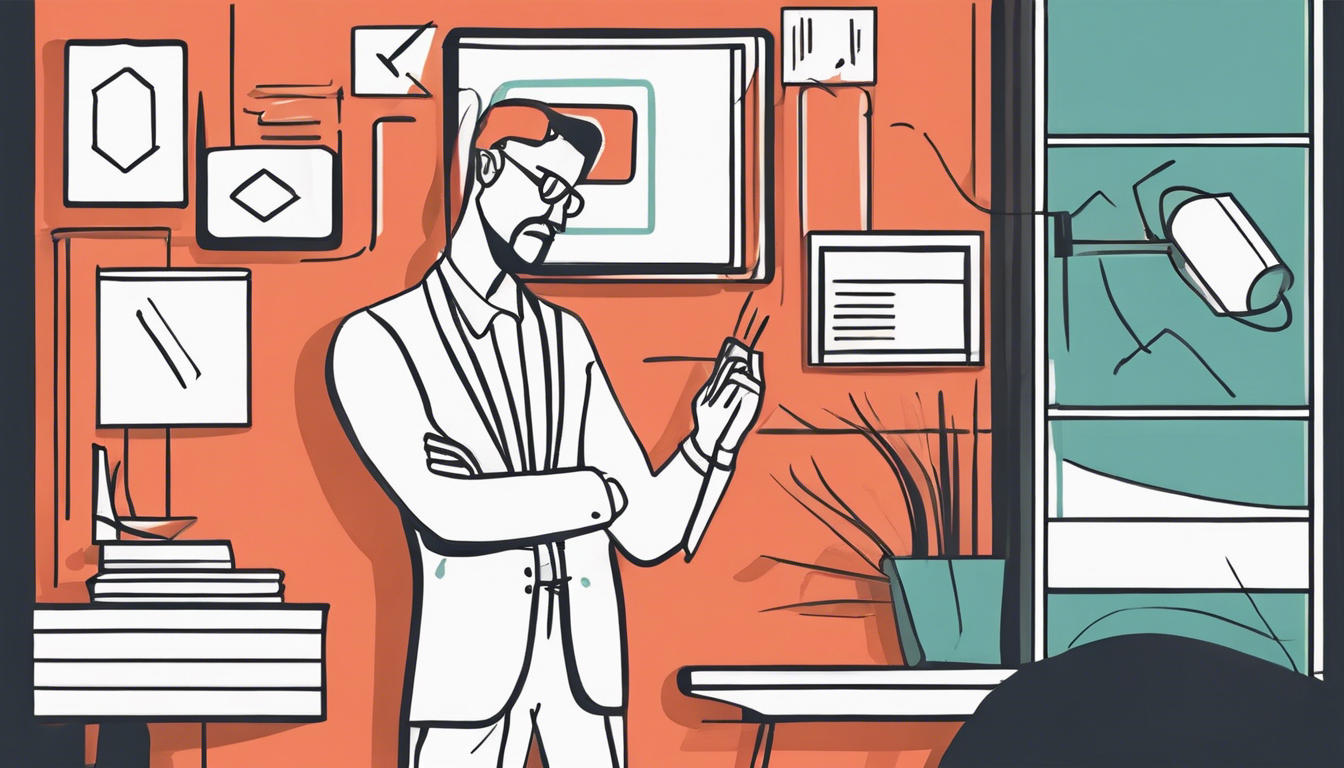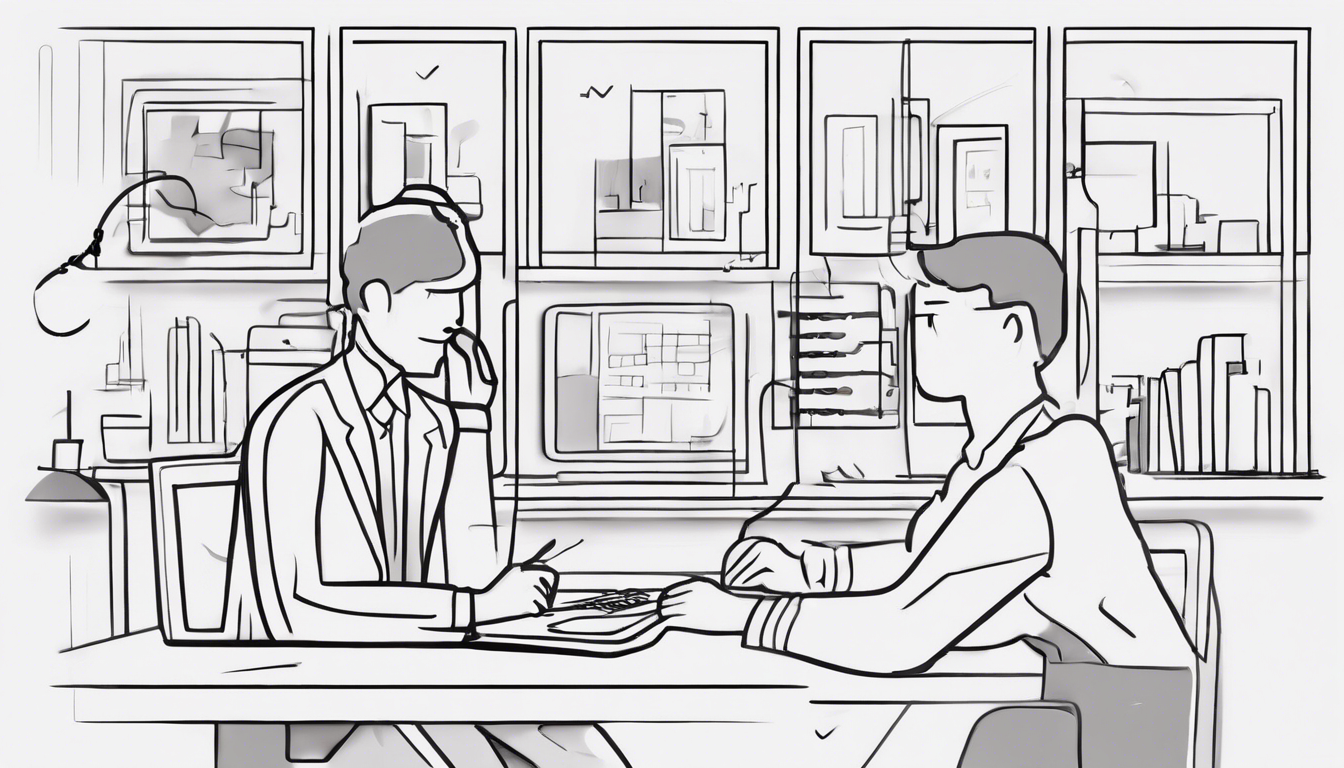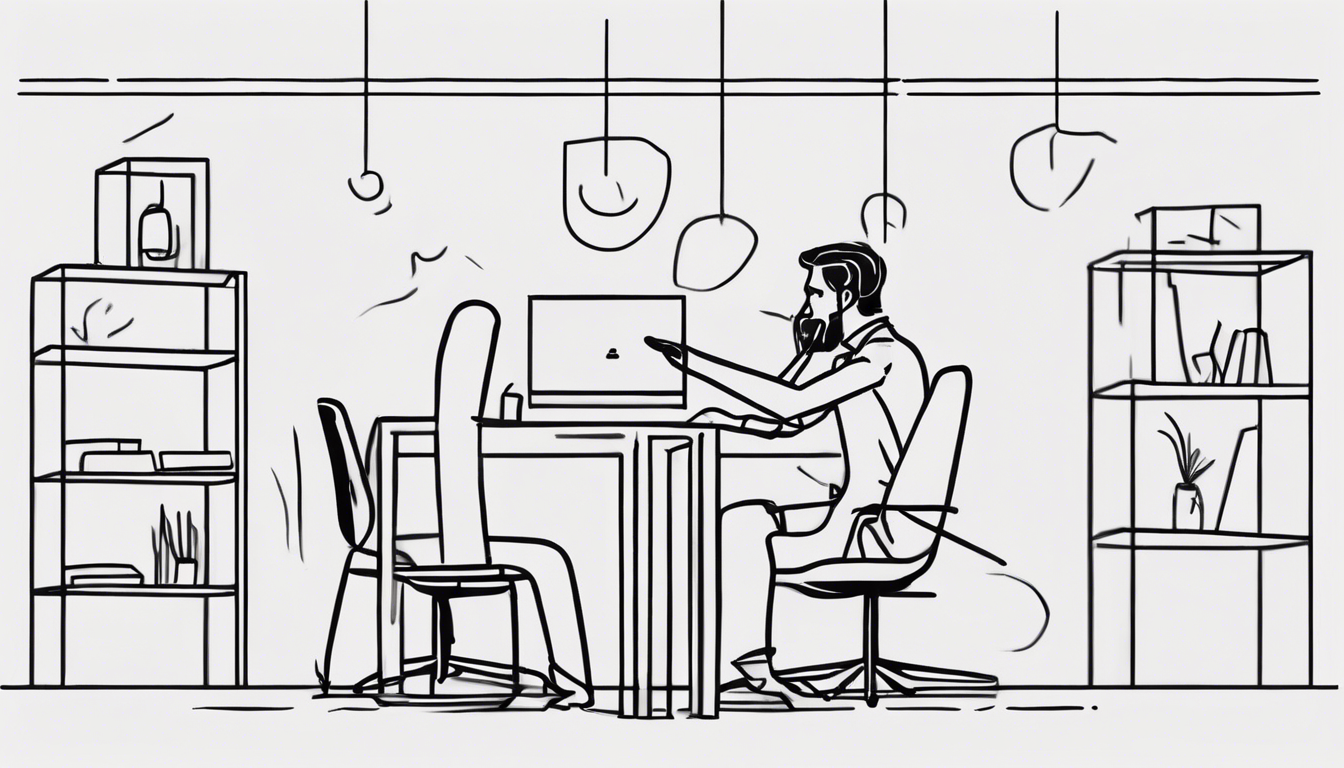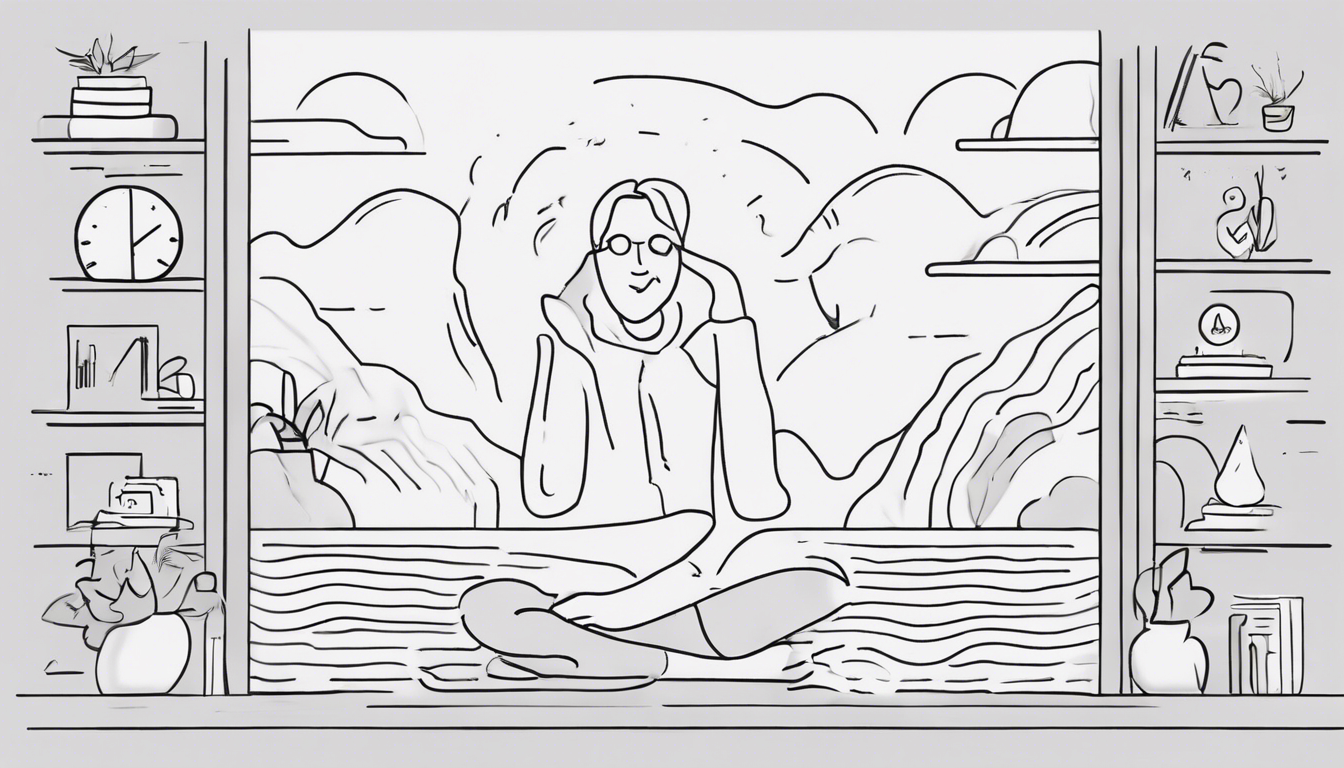Introduction
Nervousness, that jittery feeling in your stomach before a big event or a challenging situation, is a common human experience. It’s that mix of excitement and anxiety that can either propel you to greatness or leave you feeling overwhelmed. Understanding how to deal with nervousness is crucial for personal growth and success.
Addressing nervousness is not just about calming your nerves; it’s about harnessing that energy to perform at your best. Whether you’re a student facing a presentation, a professional gearing up for a job interview, or an artist about to showcase your talent, managing nervousness can make a world of difference in your outcomes.
In this essay, we will explore the various aspects of nervousness, its impacts on individuals, and effective strategies to cope with it. By the end, you’ll have a toolkit of techniques to tackle nervousness head-on and emerge stronger and more confident in facing life’s challenges.
Understanding Nervousness

Nervousness can stem from various sources, including fear of failure, uncertainty about the future, or feeling unprepared for a task. It’s a natural response triggered by your brain’s fight-or-flight mechanism, preparing you to either confront a challenge or escape from it.
The effects of nervousness on individuals can range from heightened alertness and focus to feelings of dread and panic. Physiologically, it can manifest as sweaty palms, racing heartbeat, or butterflies in the stomach. Emotionally, it can lead to self-doubt, negative thoughts, and a sense of impending doom.
Common triggers for nervousness include public speaking, social interactions, performance evaluations, and situations where the outcome is uncertain. Recognizing these triggers is the first step in learning to manage and eventually overcome nervousness in various aspects of life.
Impact of Nervousness

The physical impact of nervousness can be taxing, leading to symptoms like headaches, muscle tension, fatigue, and digestive issues. Prolonged nervousness can weaken the immune system and contribute to long-term health problems if not addressed.
Emotionally, nervousness can take a toll on mental well-being, causing anxiety disorders, depression, and low self-esteem. It can hinder personal relationships, limit opportunities for growth, and create a cycle of avoidance that reinforces the feeling of nervousness.
Socially, nervousness can lead to isolation, missed opportunities for networking or socializing, and a general sense of being held back by one’s fears. Overcoming the social impact of nervousness is essential for building strong connections and thriving in both personal and professional spheres.
Strategies for Managing Nervousness

Breathing exercises are a simple yet powerful way to calm your nerves and center yourself in moments of heightened nervousness. By focusing on deep, slow breaths, you can regulate your heart rate, reduce tension, and bring a sense of calm to your mind.
Mindfulness and meditation techniques help in cultivating awareness of the present moment, allowing you to observe your thoughts and emotions without judgment. These practices can enhance your ability to stay grounded and focused, reducing the impact of nervousness on your overall well-being.
Engaging in physical activity and making healthy lifestyle choices can positively influence your mood and stress levels, thereby reducing the frequency and intensity of nervous episodes. Regular exercise, proper nutrition, and adequate rest play a significant role in managing nervousness in the long run.
Cognitive Approaches to Address Nervousness

Cognitive Behavioral Therapy (CBT) is a structured therapeutic approach that helps individuals identify and challenge negative thought patterns contributing to their nervousness. By reframing beliefs and behaviors, CBT empowers individuals to develop healthier coping mechanisms and responses to stress.
Practicing positive self-talk and affirmations can shift your mindset from self-doubt to self-empowerment. By replacing critical inner dialogue with encouraging words, you can build resilience and confidence in your abilities to navigate challenging situations with a positive outlook.
Visualization and mental rehearsal involve mentally preparing for upcoming events by envisioning successful outcomes. By vividly imagining yourself handling situations with ease and confidence, you can reduce anticipatory nervousness and increase your readiness to face challenges head-on.
Seeking Professional Help

Therapy and counseling offer a safe space to explore the root causes of your nervousness and develop personalized strategies for coping. A trained therapist can provide guidance, support, and tools to help you navigate your emotions and build resilience in the face of anxiety.
In some cases, medication and medical interventions may be recommended to manage severe symptoms of nervousness, especially in individuals with anxiety disorders. It’s essential to consult with a healthcare professional to determine the most suitable treatment options for your specific needs.
Joining support groups or engaging with peer networks can provide a sense of community and understanding as you work through your nervousness. Connecting with others who share similar experiences can offer valuable insights, encouragement, and a sense of belonging on your journey towards emotional well-being.
Overcoming Nervousness in Specific Situations

Public speaking, often a common trigger for nervousness, can be conquered through preparation, practice, and positive self-talk. By rehearsing your speech, visualizing success, and focusing on delivering your message with confidence, you can transform your fear into a powerful tool for effective communication.
Job interviews, while nerve-wracking, can be navigated with a combination of research, self-assurance, and authenticity. By showcasing your skills, expressing your enthusiasm for the role, and maintaining a positive attitude, you can present yourself as a strong candidate despite the jitters.
Performance anxiety in creative endeavors like music, art, or sports can be managed by channeling nervous energy into passion and focus. Embracing the thrill of the performance, trusting in your abilities, and accepting that mistakes are part of growth can help you shine in the spotlight despite the initial nervousness.
Building Resilience and Confidence

Setting realistic goals that challenge you without overwhelming you is key to building resilience in the face of nervousness. By breaking down larger tasks into manageable steps and celebrating progress along the way, you can boost your confidence and motivation to tackle even more significant challenges.
Facing fears gradually, through exposure to situations that trigger your nervousness in incremental doses, can desensitize you to the anxiety-provoking stimuli. This gradual approach allows you to build confidence, adapt coping strategies, and realize that you are capable of handling discomfort with resilience.
Celebrating small victories, no matter how minor, is essential for reinforcing positive behaviors and attitudes in the face of nervousness. By acknowledging your progress, giving yourself credit for efforts made, and embracing setbacks as learning opportunities, you can cultivate a mindset of growth and self-improvement.
Maintaining Long-Term Emotional Well-Being

Self-care practices, such as prioritizing adequate sleep, healthy nutrition, regular exercise, and relaxation techniques, are fundamental for maintaining emotional well-being and managing nervousness. Taking time for yourself, engaging in activities you enjoy, and nurturing your mental health are crucial aspects of self-care.
Stress management techniques, including time management, boundary setting, and seeking social support, can help you navigate daily stressors and prevent them from escalating into overwhelming nervousness. Learning to recognize your triggers and implementing healthy coping mechanisms is key to long-term emotional resilience.
Healthy coping mechanisms, such as journaling, creative expression, mindfulness practices, and seeking professional help when needed, are essential tools for processing emotions and managing nervousness effectively. Developing a personalized toolkit of coping strategies empowers you to face challenges with confidence and grace.
Conclusion
In conclusion, dealing with nervousness is a multifaceted journey that requires self-awareness, resilience, and a willingness to seek help when needed. By understanding the causes and effects of nervousness, implementing effective strategies for management, and building long-term emotional well-being, you can conquer your fears and thrive in various aspects of life.
It is crucial to address nervousness not as a weakness but as a natural human response that can be harnessed for personal growth and success. Embracing nervousness as a catalyst for change and learning can transform it from a hindrance into a stepping stone towards achieving your goals and fulfilling your potential.
I urge you to take proactive steps in managing your nervousness, whether through self-help techniques, professional guidance, or a combination of both. Remember, you are not alone in your struggles, and there is a wealth of resources and support available to help you navigate the challenges of nervousness and emerge stronger on the other side.





